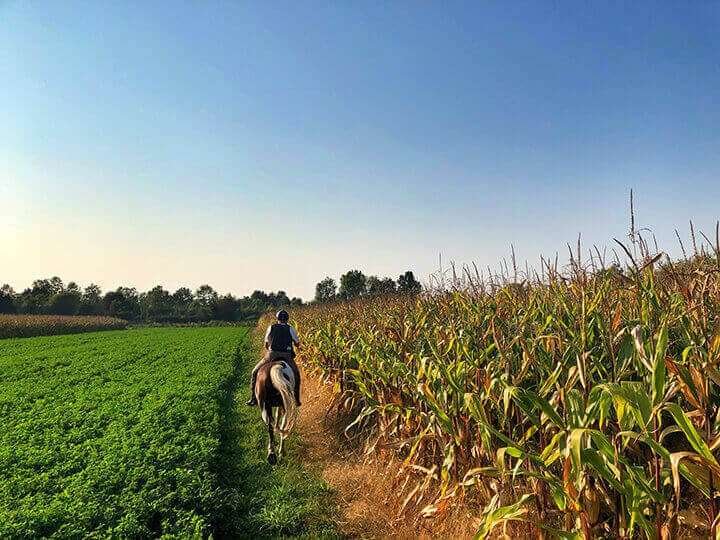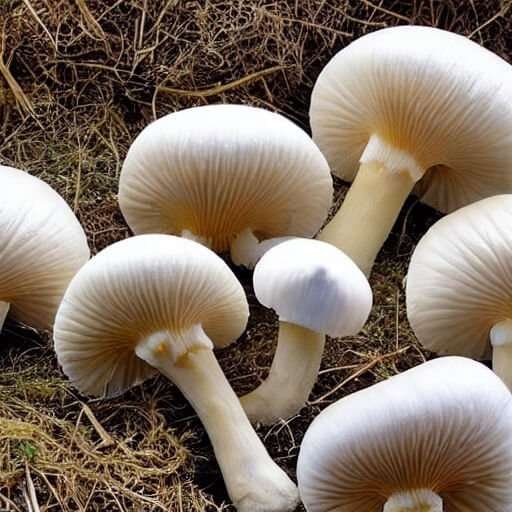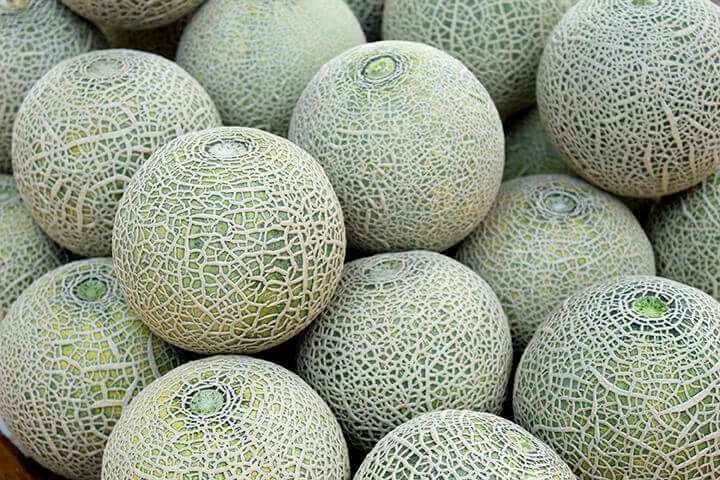Corn is a good source of energy, but use it with caution due to high-starch content and potential digestive issues. Horses are animals that love to eat only plants. But horses do not only eat and enjoy the grass but enjoy other tastes too. This includes carrots, oranges, grapes, almonds, peanuts corn, etc. Do people ask what kind of fruits and veggies horses can have? Before feeding anything to horses, we should know what is best and what can cause health issues such as colic or other problems. Corn is food that is not eaten by horses naturally, but is present in every horse feed.
Types of Corn Given To Horses
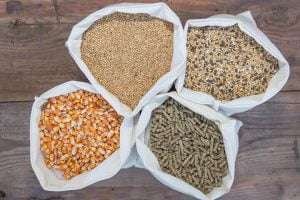 If someone asks you what is corn, you will describe it as sweet yellow cobs of yellow corn. However, different types of corn are being used. We can give it to our horses. Sweet corn, field corn, and wheat corn are types we will discuss further. To know which type is good for the horse, let’s dig deeper into that detail.
If someone asks you what is corn, you will describe it as sweet yellow cobs of yellow corn. However, different types of corn are being used. We can give it to our horses. Sweet corn, field corn, and wheat corn are types we will discuss further. To know which type is good for the horse, let’s dig deeper into that detail.
Sweet Corn
Sweet corn contains a lot of sugar. They are gathered before starting to dry. After being cooked, the entire ear can be eaten.
Field Corn
Field corn has a different flavor and texture than sweet corn. It is typically employed in the production of maize flour. Before it dries out, this is harvested. The majority of field corn is utilized in animal feeds.
Feeding Corn to Horses
 Treat your horse to some fresh corn. The best way to do this is to buy corn kernels from the market. Corn kernel from the store will be toxin-free, and it will be ready-made for horses to eat. It will be safer for your equine. Horse feeds mostly contain corn. Some people feed their horses corn straight out of the field, which can be dangerous as it needs a thorough cleaning, and also it can be dangerous because of the chemicals used in growing them. It can become infected before the corn is harvested. Research says that factors including weather or insects can make the corn vulnerable to fungus. It can increase the chances of corn being toxic.
Treat your horse to some fresh corn. The best way to do this is to buy corn kernels from the market. Corn kernel from the store will be toxin-free, and it will be ready-made for horses to eat. It will be safer for your equine. Horse feeds mostly contain corn. Some people feed their horses corn straight out of the field, which can be dangerous as it needs a thorough cleaning, and also it can be dangerous because of the chemicals used in growing them. It can become infected before the corn is harvested. Research says that factors including weather or insects can make the corn vulnerable to fungus. It can increase the chances of corn being toxic.
If horses eat that corn, that can cause them neurological disease termed leukoencephalomalacia, also named moldy corn poisoning. It can be deadly as it has no treatment available. It may take some procedures to look for damaged corn. Feed mills are responsible for checking whether the corn is healthy or not healthy for horses. If you want to buy corn for your horses directly from the field, you should take care of the matter. And check before giving it to your equine friend. It will be better if you check and then feed it to your horse.
Corn is a palatable feed ingredient. Horses enjoy corn and oats more than several other grains. Horses with strong teeth can use their mouth to break kernels easily and chew them to make them digestible. But older horses cannot do this, as older horses may have dental issues. Corn is a good provider of high energy. But I cannot make your horse gain weight or be more playful.
Who Made Corn A Part Of Animal Feed?
People ate it all, and there wasn’t much left for other animals. So because corn was in so much amount, farmers decided to use it in the agricultural industry for animal feeds. Corn is easily accessible. It is cheap in price and high in nutrition. It helps animals in gaining some healthy weight. Corn’s pH is more acidic so beneficial bacteria die off. The pathogenic bacteria take over. These bacteria wreak havoc on the body creating illness and inflammation inside. Corn is very rich in omega 6’s which promotes inflammation.
Some of the facts about corn are;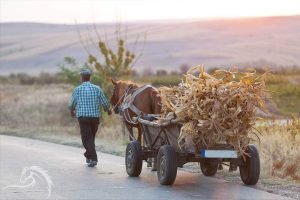
- Corn is very rich in Omega 6’s
- Omega 6’s are inflammatory, and Omega 3’s are anti-inflammatory substances.
- Eating corn may promote inflammation in the body of horses
- Corn creates acidic stomach pH
- Acidic pH creates a bad environment for bacteria that is good and a good environment for bad bacteria
- Horses do not evolve on corn
- Do not add corn to horse feed
Can Horses Eat Corn?
 If you look at store shelves of horse and other livestock feed, you will find corn in every feed. However, the processing of corn makes it more digestible for animals. They can easily digest processed corn. Commonly used methods for consuming corn in animals are crushing or steaming cornflakes contained in mixed grain or pelleted diets.
If you look at store shelves of horse and other livestock feed, you will find corn in every feed. However, the processing of corn makes it more digestible for animals. They can easily digest processed corn. Commonly used methods for consuming corn in animals are crushing or steaming cornflakes contained in mixed grain or pelleted diets.
Corn is a highly palatable grain. Study shows, the second most popular grain after oats, is corn. The safest way to feed your horse corn is by removing kernels from the inner ear. Grinding the molar teeth of the horses will have no issue in breaking the hard part of the outer layer of the corn kernel.
Bad Effects of Corn
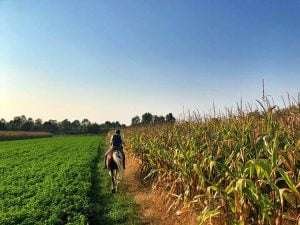 Corn is very high in energy if we compare it to a horse’s regular diet which includes grass and hay. Feeding corn to your horse can have two effects on your horse. Corn is low-fiber grain. Horses need high fiber in their diet to digest and have a healthy digestive system. As oats have high fiber, which helps horses maintain their digestive system healthy. Corn can give horses energy and make them overexcited, which can lead to obesity if the horse can’t use the energy. It’s important to check corn fed to horses for fumonisin and to remove the outer husk and inner ear so the horse can chew it properly.
Corn is very high in energy if we compare it to a horse’s regular diet which includes grass and hay. Feeding corn to your horse can have two effects on your horse. Corn is low-fiber grain. Horses need high fiber in their diet to digest and have a healthy digestive system. As oats have high fiber, which helps horses maintain their digestive system healthy. Corn can give horses energy and make them overexcited, which can lead to obesity if the horse can’t use the energy. It’s important to check corn fed to horses for fumonisin and to remove the outer husk and inner ear so the horse can chew it properly.
Conclusion
We can say that corn is healthy for horses. Grains not specifically grown for horses can contain toxins that can damage a horse’s nervous system. Giving will help you avoid this. Corn is high energy and low fiber grain. Horses need more fiber for their digestive system. The energy that corn provides can be a cause of obesity in your horse. It is better to only feed mixed corn. And not give your horse corn separately.

